Introduction
When embarking on a project that requires intense cleaning power, understanding the nuances of pressure washer rentals can save both time and money. This comprehensive guide delves into the various types of pressure washers available for rent, including electric, gas, and commercial-grade options, along with their average rental costs. It also explores the cost benefits of different rental time frames—hourly, daily, and weekly—providing a detailed breakdown to help with budgeting.
Beyond basic rental fees, the article sheds light on additional costs such as accessories, deposit fees, and insurance coverage. It further contrasts the pros and cons of renting versus buying a pressure washer, offering insights to help make an informed decision. Essential factors to consider before renting, such as task requirements, duration of use, and transportation, are discussed to ensure the most suitable and cost-effective choice.
Lastly, the article provides practical advice on where to rent a pressure washer and tips for maximizing the efficiency and safety of the rental equipment.
Types of Pressure Washers and Their Average Rental Costs
Comprehending the different kinds of pressure cleaning devices and their related rental fees is essential when thinking about leasing one for your project. Pressure washers are generally categorized into three main types: electric, gas, and commercial-grade.
-
Electric Pressure Washers: These are the most budget-friendly option, typically costing between $30 and $50 per day. They are ideal for light-duty tasks such as cleaning cars or patios.
-
Gas Pressure Washers: Offering more power, gas models are suitable for medium to heavy-duty cleaning jobs. Rental prices for these units usually range from $50 to $100 per day, depending on their psi (pounds per square inch) and gpm (gallons per minute) specifications.
-
Commercial-Grade Pressure Washers: Designed for the most demanding tasks, these heavy-duty machines can be priced at over $100 per day to rent. They are perfect for extensive projects like cleaning building exteriors or tackling large-scale landscaping tasks.
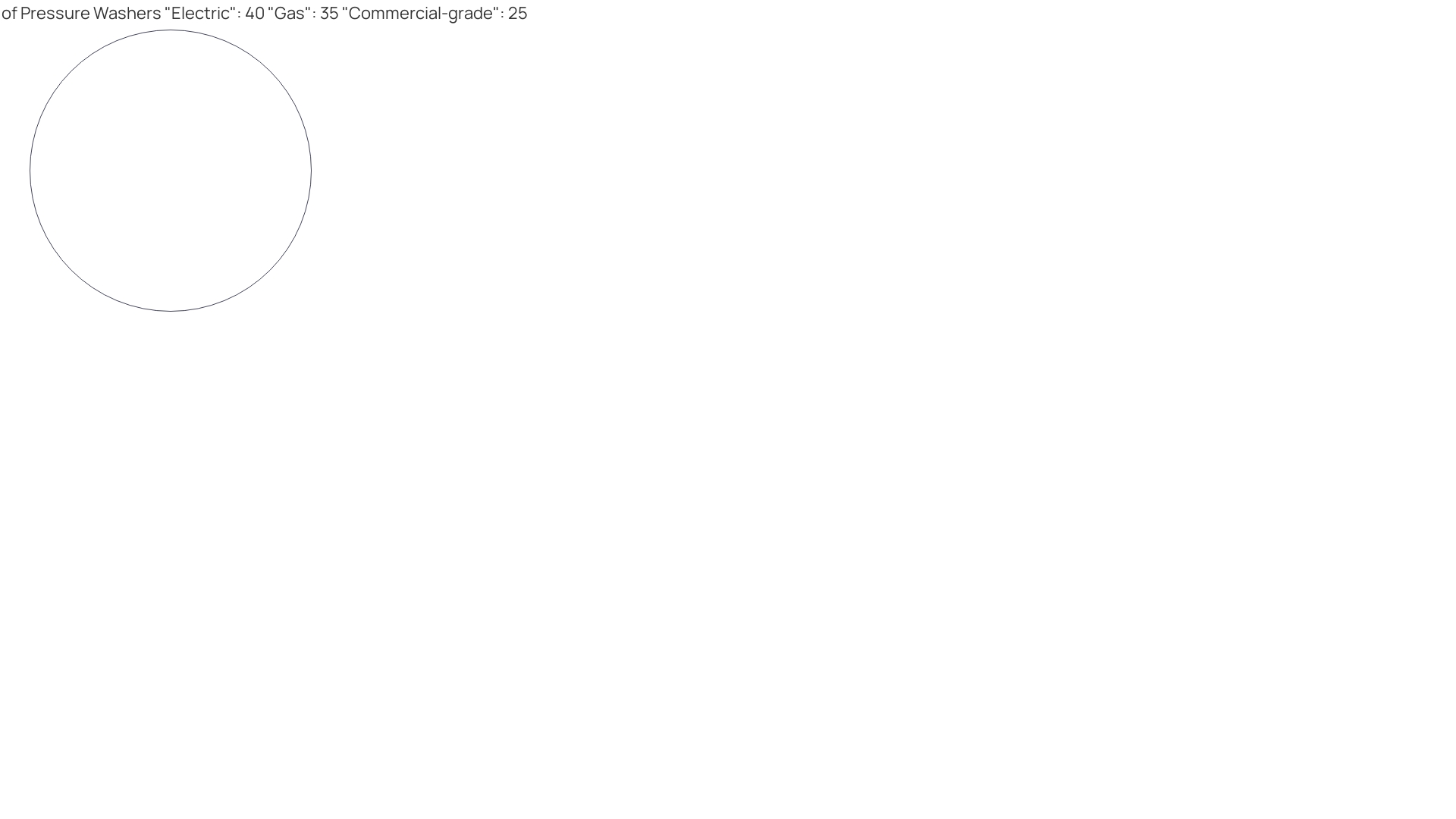
Rental Time and Cost Breakdown
Comprehending the leasing duration and its effect on total expenses is essential for efficient financial planning in construction projects. Most leasing firms provide hourly, daily, and weekly prices, each addressing various project requirements and schedules.
-
Hourly Services: Ideal for swift tasks, hourly services provide flexibility. Typically, electric models cost about $10-$15 per hour, while gas models range from $20-$30 per hour. This option is perfect for short-term use without committing to longer leasing periods.
-
Daily Hires: For larger tasks, daily hires often provide significant savings over hourly rates. These rates are more economical when the equipment is needed for an entire day, helping to manage costs effectively.
-
Weekly Leasing: When projects extend over several days, weekly leasing presents the most cost-effective solution. Prices range from $150-$300, depending on the type of washer. This choice guarantees that you possess the tools for the necessary time without the inconvenience of renewing daily leases.
In the competitive equipment leasing market, strategic choices can make a significant difference in project budgeting and efficiency.
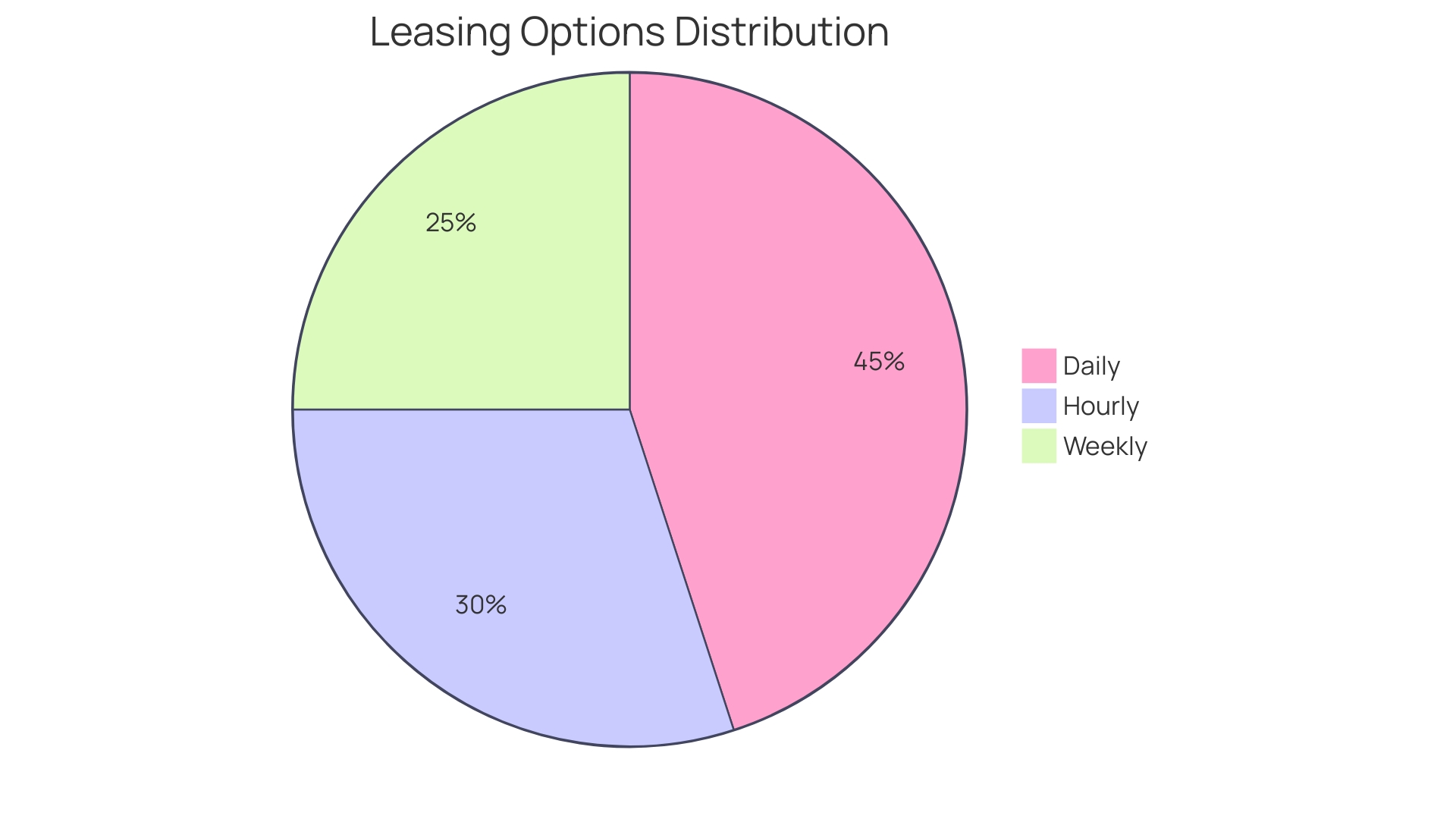
Additional Pressure Washer Costs to Consider
Beyond the base fees for leasing, several additional costs may arise when using a pressure washer.
-
Accessories and Attachments: Many leasing firms provide various nozzles, surface cleaners, and hoses, often at an extra charge. These can add $10-$50 to your total.
-
Deposit Fees: Most leases require a deposit, which can range from $50 to $200, depending on the item's value.
-
Insurance Coverage: Some companies may offer insurance options to cover potential damages, which can add another $10-$30 to your rental cost.
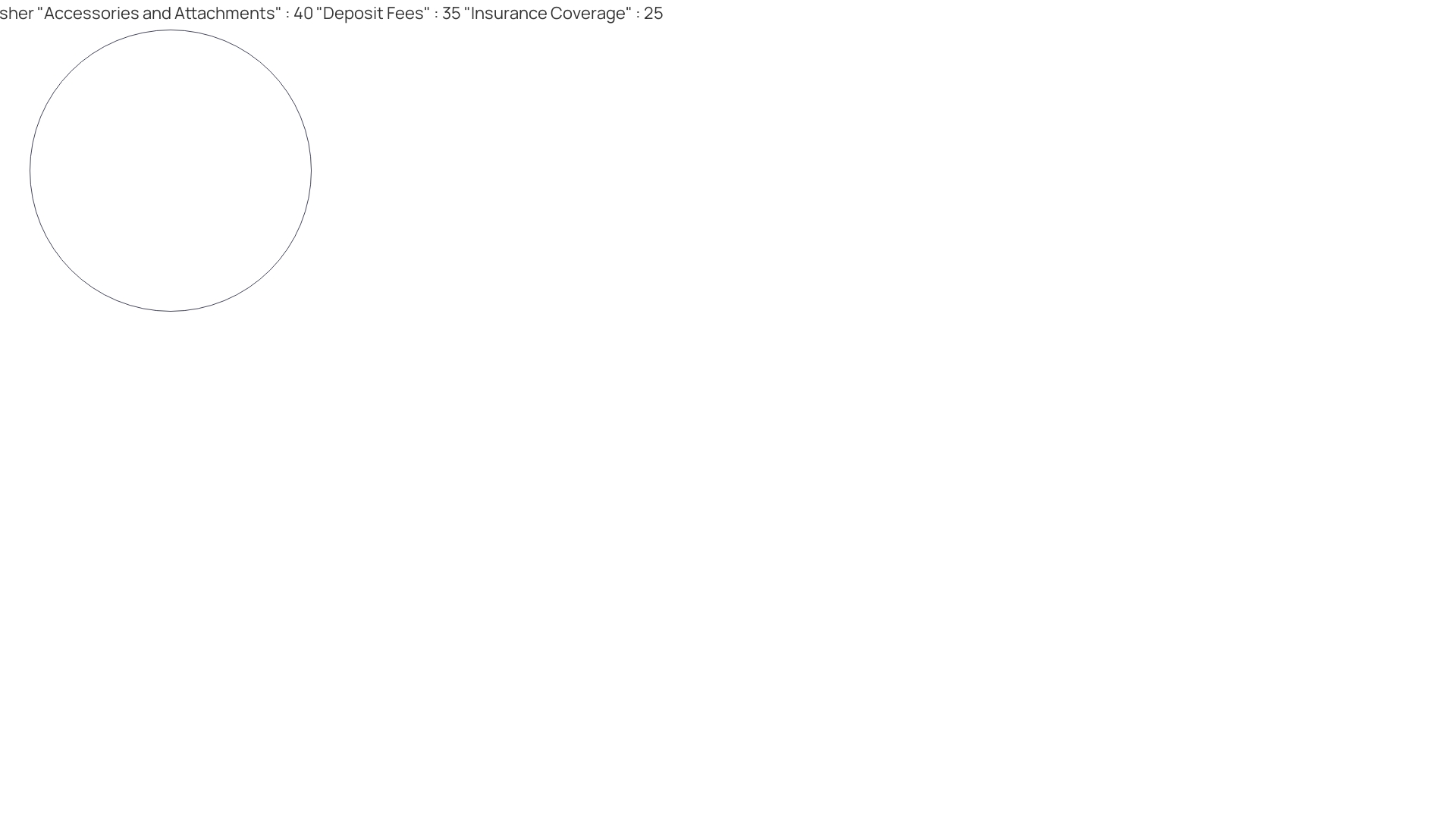
Comparison of Renting vs. Buying a Pressure Washer
Determining whether to rent or purchase a pressure cleaning device depends on recognizing your particular requirements and the frequency of your usage.
-
Renting: This option is perfect for those tackling infrequent tasks or one-off projects. Renting can be particularly cost-effective, as it eliminates the need for long-term storage, regular maintenance, and significant initial investment.
-
Acquisition: If your projects necessitate frequent use of a pressure cleaning device, obtaining one might be more economical over time. 'The price of a pressure washer can vary widely, with models ranging from $100 to $1,000, depending on the features and capabilities you need.'.
Grasping these choices can assist you in making a well-informed choice, guaranteeing that you balance expense with utility and convenience. For example, purchasing a high-end model for frequent use might save money in the long run, considering the costs of repeated rentals.
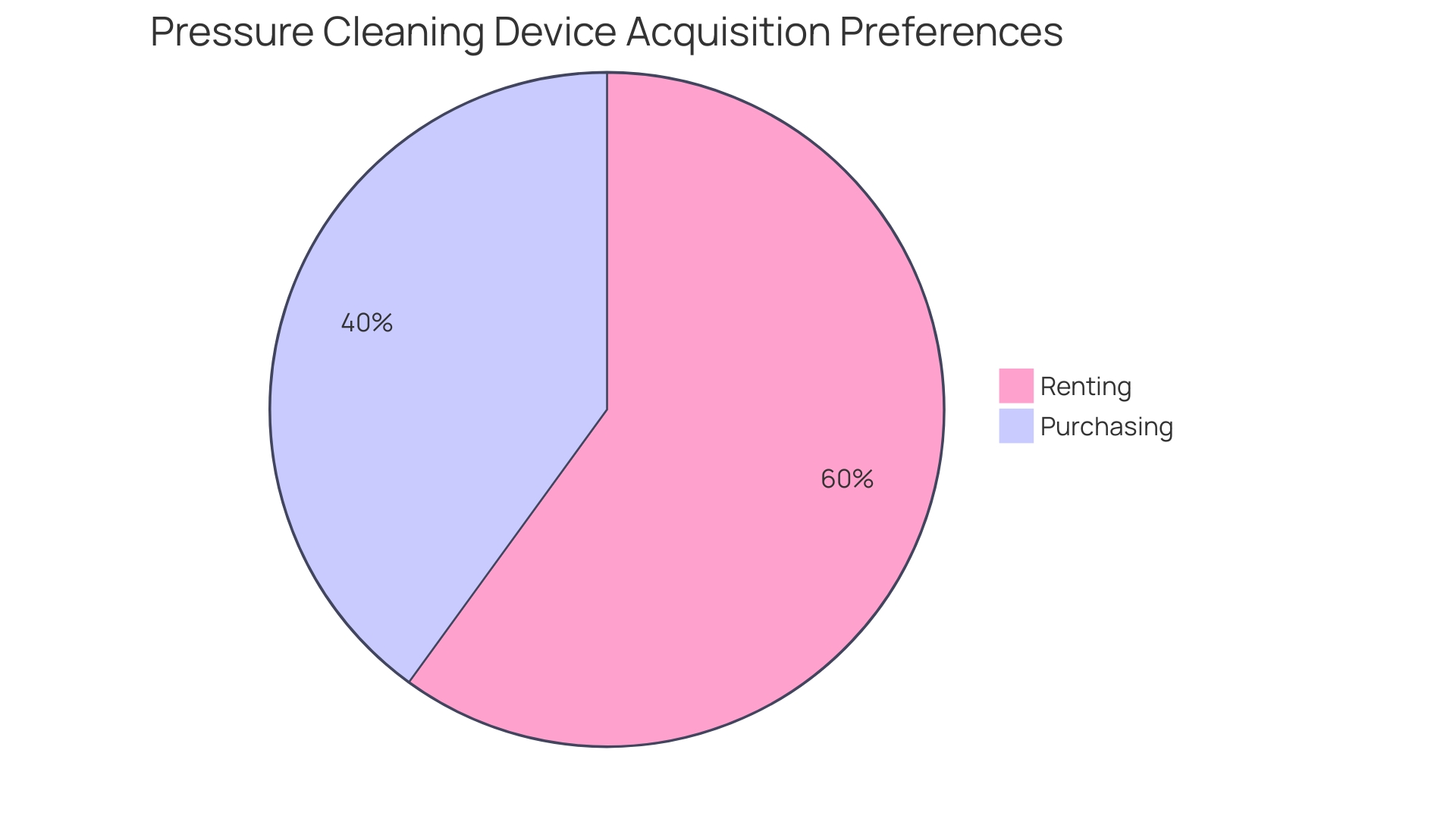
Factors to Consider When Renting a Pressure Washer
Before leasing a pressure cleaner, several factors require attention to guarantee you choose the appropriate tools for your tasks.
-
Task Requirements: Analyze the surface and the type of dirt or grime you will be tackling. Higher pressure (psi) might be necessary for more demanding jobs. According to a study by the Harvard Joint Center for Housing Studies, understanding the specific requirements of your task can greatly influence the efficiency of the equipment you choose.
-
Duration of Use: Determine how long you will need the pressure washer. This decision affects the lease type—whether hourly, daily, or weekly. Research shows that proper planning can result in substantial savings. For example, a case analysis demonstrated that enhancing leasing durations can decrease total project expenses by as much as 20%.
-
Transportation: Consider how you will transport the machine. Some leasing services provide delivery choices, which can influence your total costs. Sustainable delivery options are increasingly being adopted to minimize carbon footprints. A study highlighted that such services might slightly increase costs but offer convenience and environmental benefits, especially if multiple deliveries are combined to reduce emissions.
Considering these factors will guarantee you select the most appropriate and economical pressure cleaning equipment for your requirements.
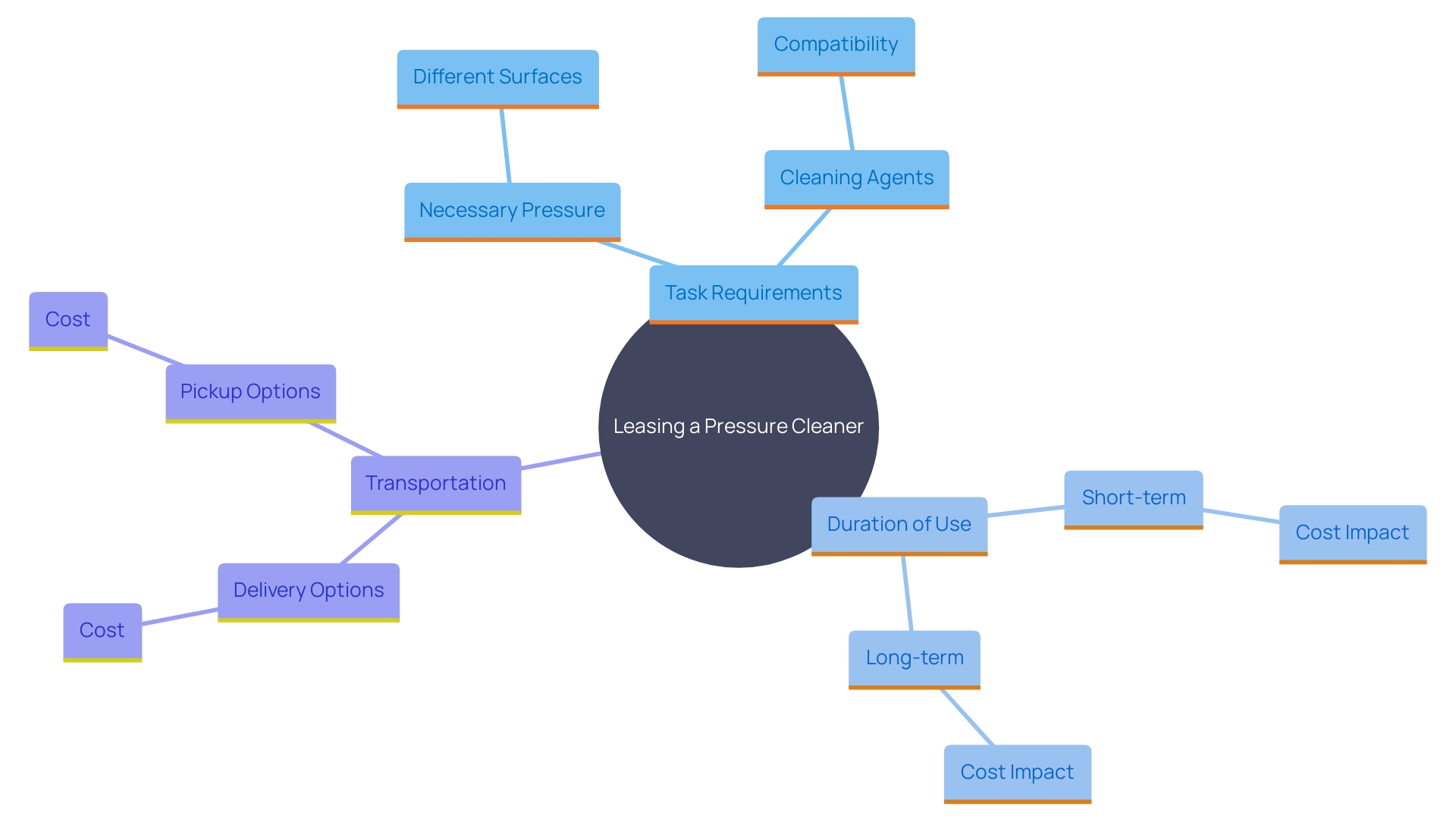
Where to Rent a Pressure Washer
Securing the ideal location to rent a pressure cleaning device can greatly enhance your project outcomes.
-
Local Home Improvement Stores: Major chains like Home Depot and Lowe’s provide rental sections with a variety of pressure cleaning devices to suit different needs. Their gear is well-maintained, and staff can offer helpful guidance on choosing the right model.
-
Specialty Equipment Rental Companies: These businesses often carry a broader selection of industrial-grade power washers. The personnel at these firms are generally more informed about the machinery, ensuring you obtain the correct device for your particular needs.
-
Online Leasing Platforms: Websites and apps enable peer-to-peer sharing, often offering more competitive prices and access to unique gear choices. This option can be particularly cost-effective, with daily rental costs for basic power tools ranging from $30 to $50.
Tool-shares or tool libraries also offer a practical option for borrowing tools. These community-based programs offer tools either free of charge or for a nominal fee, making them an affordable option for basic and large equipment needs.
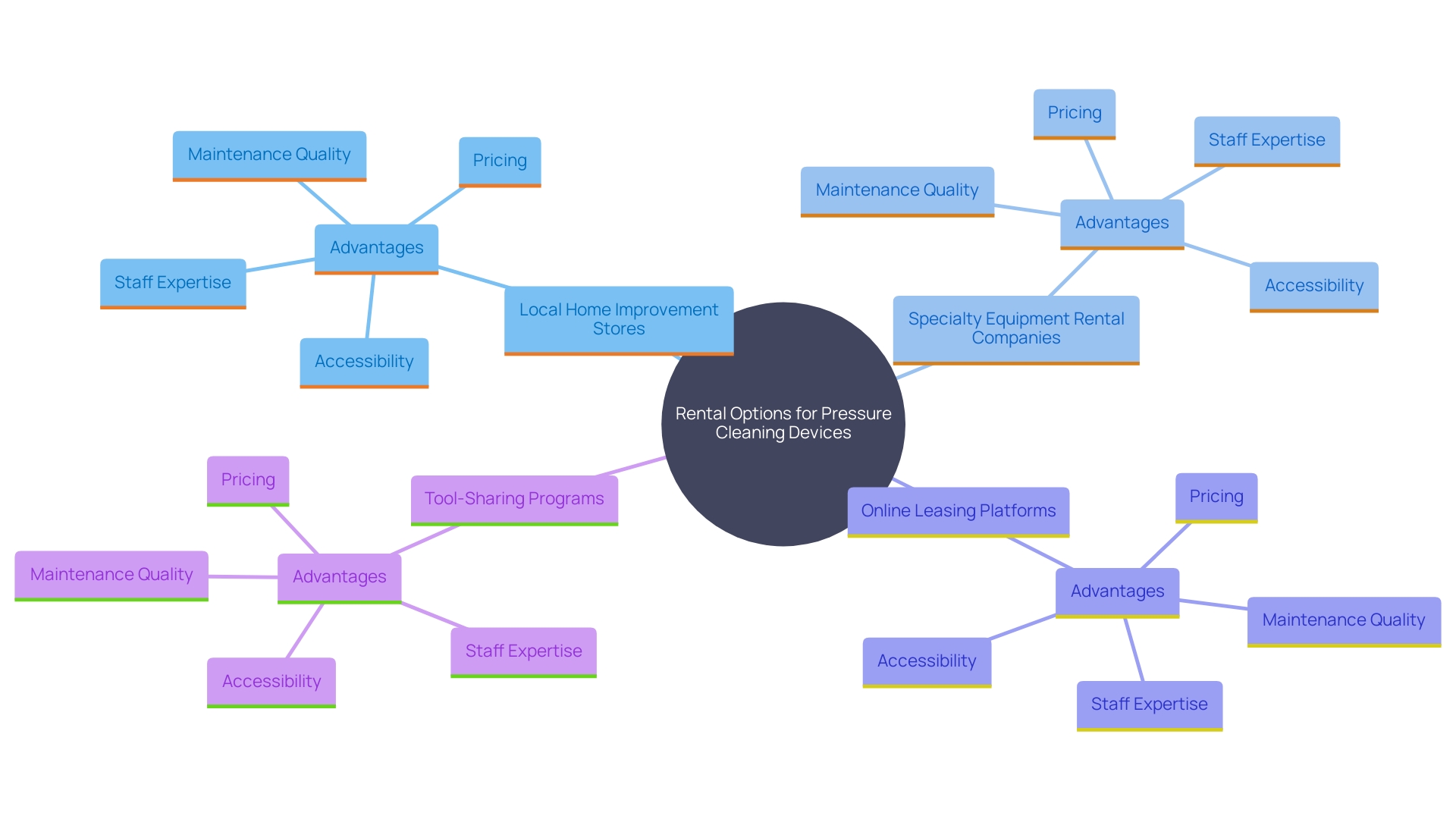
Tips for Getting the Most Out of Your Pressure Washer Rental
To ensure you get the most out of your pressure washer rental, consider these key tips:
- Pre-Clean the Area: Clear away any loose debris or dirt before you begin. This step can significantly enhance the efficiency of your pressure washing efforts, saving you both time and effort.
- Choose the Right Nozzle: Selecting the correct nozzle is crucial for a successful cleaning job. Wider spray nozzles are ideal for delicate surfaces, while narrower ones provide the power needed for tougher grime. This ensures you achieve the desired results without damaging surfaces.
- Follow Safety Guidelines: Safety should always be a priority. Wear protective gear such as gloves and goggles, and thoroughly read the manufacturer's instructions. This will help you avoid accidents and ensure a smooth and safe operation.
Conclusion
Understanding the complexities of pressure washer rentals is essential for effective project management and cost savings. The article outlines the types of pressure washers available—electric, gas, and commercial-grade—along with their rental costs, providing a clear picture of what to expect. It emphasizes the importance of selecting the appropriate rental duration, whether hourly, daily, or weekly, to optimize expenses based on project needs.
Additional costs associated with pressure washer rentals, such as accessories, deposit fees, and insurance, are also highlighted. This insight aids in creating a comprehensive budget, ensuring that all potential expenses are accounted for. The comparison between renting and buying illustrates the necessity of evaluating personal usage frequency and project requirements, allowing for a more informed decision.
Key factors to consider before renting, such as task requirements, duration of use, and transportation options, further enhance the decision-making process. By carefully considering these elements, individuals can select the most suitable and economical pressure washer rental for their specific tasks. Lastly, the article provides practical tips to maximize the efficiency and safety of the rental equipment, ensuring that projects are completed effectively and without unnecessary delays.
Overall, a thorough understanding of pressure washer rentals can lead to significant time and cost savings, making it a valuable resource for anyone undertaking cleaning projects.




